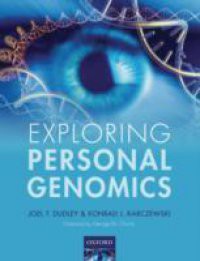Rapid advances in high-throughput genome sequencing technologies foreshadow a near-future in which millions of individuals will gain affordable access to their complete genome sequence. This promises to offer unprecedented insights into the fundamental biological nature of ourselves and our species: where we came from, how we begin our lives, how we develop and grow, how we interact with our environment, how we get sick, how we get well, and how we age. Personalgenomics is an essential component of the inevitable transition towards personalized health and medicine. As the medical establishment begins to explore and evaluate the role of personal genomics in health and medicine, both clinicians and patients alike will gain from becoming well versed in both thepower and the pitfalls of personal genomic information. Furthermore, it is likely that all students of the biomedical sciences will soon be required to gain crucial understanding in the emerging field of personal genomics. Exploring Personal Genomics provides a novel, inquiry-based approach to the understanding and interpretation of the practical, medical, physiological, and societal aspects of personal genomic information. The material is presented in two parts: the first provides readers of all backgrounds with a fundamental understanding of the biology of human genomes, information on how to obtain and understand digital representations of personal genomic data, tools and techniques for exploring thepersonal genomics of ancestry and genealogy, discovery and interpretation of genetic trait associations, and the role of personal genomics in drug response. The second part offers more advanced readers an understanding of the science, tools, and techniques for investigating interactions between a personalgenome and the environment, connecting DNA to physiology, and assessing rare variants and structural variation. This book aims to support undergraduate and graduate studies in medicine, genetics, molecular biology, and bioinformatics. Additionally, the design of the content is such that medical practitioners, professionals working in the biomedical sciences or related fields, and motivated lay individuals interested in exploring their personal genetic data should find it relevant and approachable.

